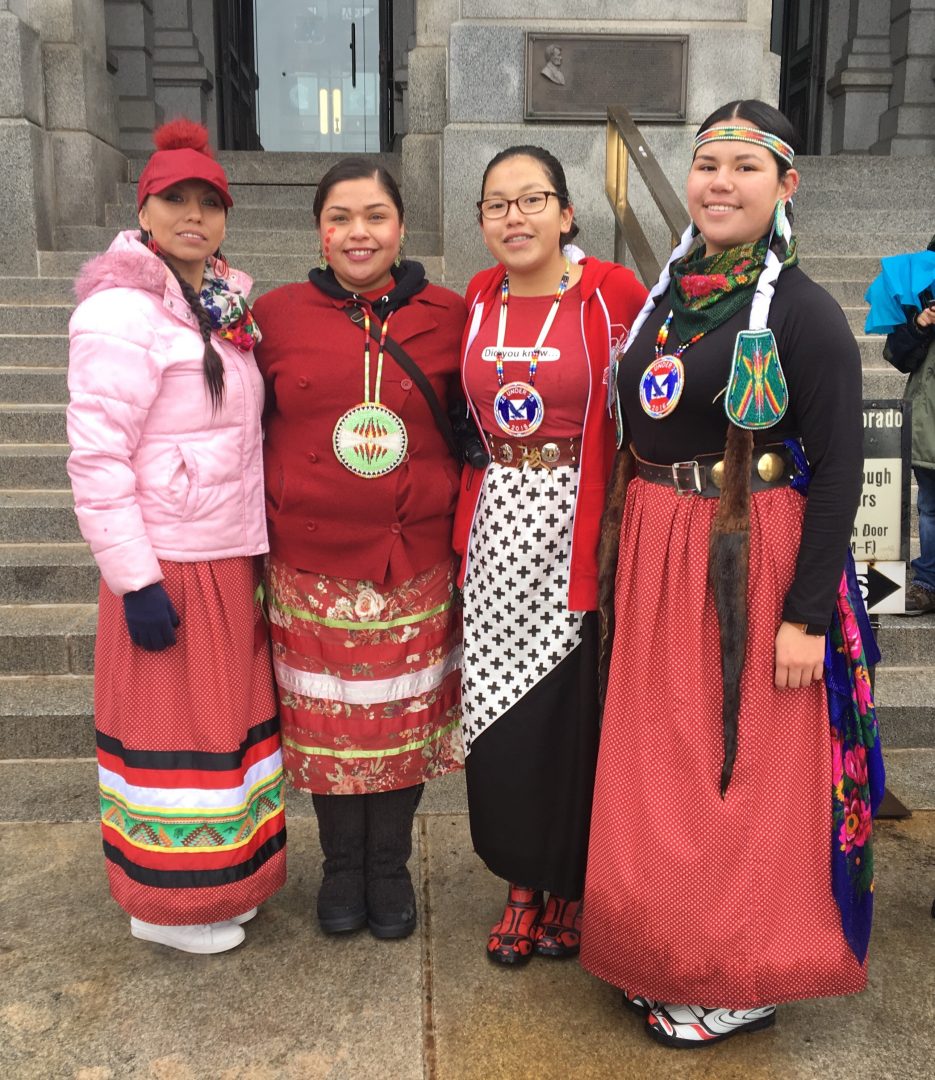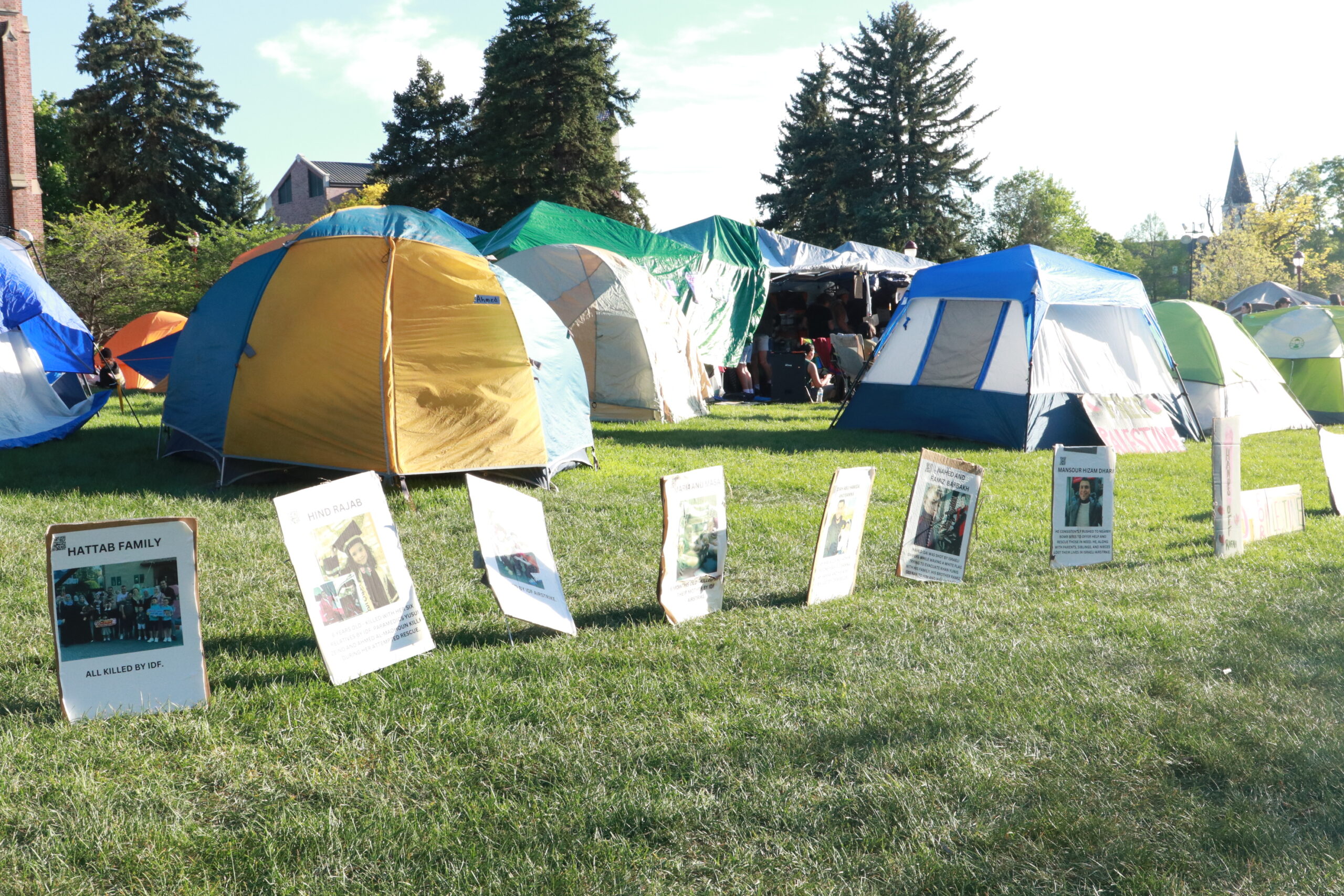Marching up to the steps of the Colorado State Capitol on Jan. 18, members of the indigenous community in the U.S. took a stand to make their voices heard and bring awareness to the oppression of indigenous people all across the country. The organizer of the Denver march, Terri Arnel, was passionate about the event because she had the goal to “bring representation to [her] people and to…unite youth, elders and allies to create some kind of sustainability and understanding for the community.”
Jazmine and Christie Wildcat are two young women from Riverton, Wyo., a border town of the Wind River Reservation where they have lived for the past 10 years, who were participating in the day’s march. These two individuals wanted to “stand up for [their] people because they just get pushed aside.” Having attended other marches in the past, Christie shared that this one was similar but also said, “There is a lot more emotion here for me because it is about indigenous people; I have a tie; that’s my people; it’s personal to me.”
The power of this march was escalated by the fact that members of indigenous communities from all over were gathering on the land of one of the most incredibly devastating historical events, the Sand Creek Massacre. Christie said, “I was marching for the people who couldn’t march and…standing up for people who need to be stood up for.” There are a lot of trials the indigenous community in this country has faced, from having land taken away to native women being subject to violence, and this march is working to show the progress towards an end to this brutality.
Not only was the march a symbol of the unity of indigenous people, but it was also symbolic through the perseverance of those who did come out to participate in the march. As are many events in January, this Indigenous Peoples’ March was flooded with snowfall and freezing temperatures. Rather than letting this stop hope, however, Christie made the comparison that her “ancestors marched thousands and thousands of miles in this type of weather” which gave her “that realization that ‘Wow, I am going through what my ancestors went through,’” and inspired her to represent them here today.
“We never left, we’re still here and you can’t walk over us,” said Jazmine Wildcat.












